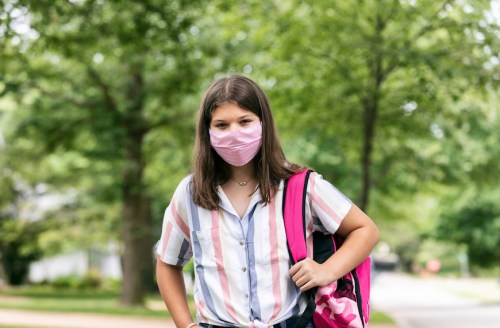As the Centers for Disease Control and Prevention (CDC) expands COVID-19 vaccination recommendations, younger people are now eligible. Currently, anyone five years or older can get a COVID-19 vaccine; however, many young people are beholden to their adult caregivers—many of whom might be vaccine-hesitant. In other words: Most young people can’t get vaccinated without parental consent.
So what do you do if you’re a minor who wants the vaccine but can’t get permission from your caregiver? It can be frustrating (and frightening) if you want to get vaccinated, but you’re unsure how to move forward. However, there are some options.
The legal landscape
It’s worth noting right away: In most cases, parents and guardians have a legal right to make health decisions for their children—and this includes choices about vaccination. That said, vaccine legislation varies by state. In some states, minors can consent to vaccines for certain STIs without parental approval. “In California, for example, minors who are 12 or older do not need their parent’s consent to receive the Human Papilloma Virus (HPV) or Hepatitis B vaccines,” says Shoshana Ungerleider, MD, an internal medicine doctor and host of the TED Health Podcast. “They still must have parental consent to receive all other vaccinations.”
Additionally, “most states do make exceptions for minors who are emancipated, homeless, or estranged from their parents,” says David Reischer, a lawyer and CEO of LegalAdvice.com. He adds that about 16 states utilize the “mature minor doctrine,” which allows a provider to “use their discretion if a minor possesses the maturity to consent for oneself.”
According to an article published in JAMA Pediatrics, we might consider widespread policy change to help reduce coronavirus spread, especially since young people tend to have more mild or asymptomatic cases and can spread the virus to others since they may not know they have COVID-19.
What are your options
It’s challenging for younger children to obtain any medical treatment without parental consent. “Typically authorization without parental consent would only be if the child was at extremely high risk for COVID-19 disease or illness and the decision can be made in conjunction with their healthcare provider,” says Christina Madison, PharmD, a clinical pharmacist specializing in public health with a focus on infectious communicable diseases. “For older children (14 years and older), the rules are state-specific.”
Currently, “Two cities, Philadelphia and San Francisco, permit minors over 12 years of age to self-consent for COVID-19 vaccination,” says Reischer. Dr. Ungerleider elaborates that “In San Francisco County, minors ages 12 years old or older can self-consent as long as the healthcare provider administering the dose reasonably attempts to notify their guardian and allow them the opportunity to object.”
Additionally, Washington DC passed a local law in 2019 that says people 11 years or older “may consent to receive a vaccine where the minor is capable of meeting the informed consent standard.” It was passed before the pandemic, but it applies to all government-recommended vaccines.
If you’re interested in getting vaccinated, Dr. Madison suggests “the adolescent to reach out to their pediatrician, federally qualified health center, or county health department and find out what their options are based on their state legislation.” (You can use this Kaiser Family Foundation database to check out state laws overall.)
If the law isn’t on your side, you can try talking to your parents and consider reaching out to policymakers to see if you can inspire policy changes. And while it might not seem like much—continuing to spread truthful information about the efficacy and safety of vaccines can only help convince more parents to let their kids get vaccinated.
Oh hi! You look like someone who loves free workouts, discounts for cutting-edge wellness brands, and exclusive Well+Good content. Sign up for Well+, our online community of wellness insiders, and unlock your rewards instantly.
Sign Up for Our Daily Newsletter
Get all the latest in wellness, trends, food, fitness, beauty, and more delivered right to your inbox.
Got it, you've been added to our email list.











